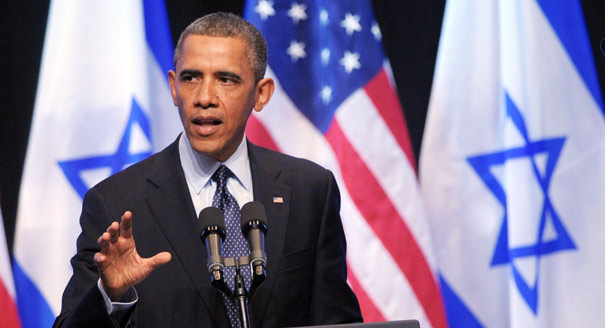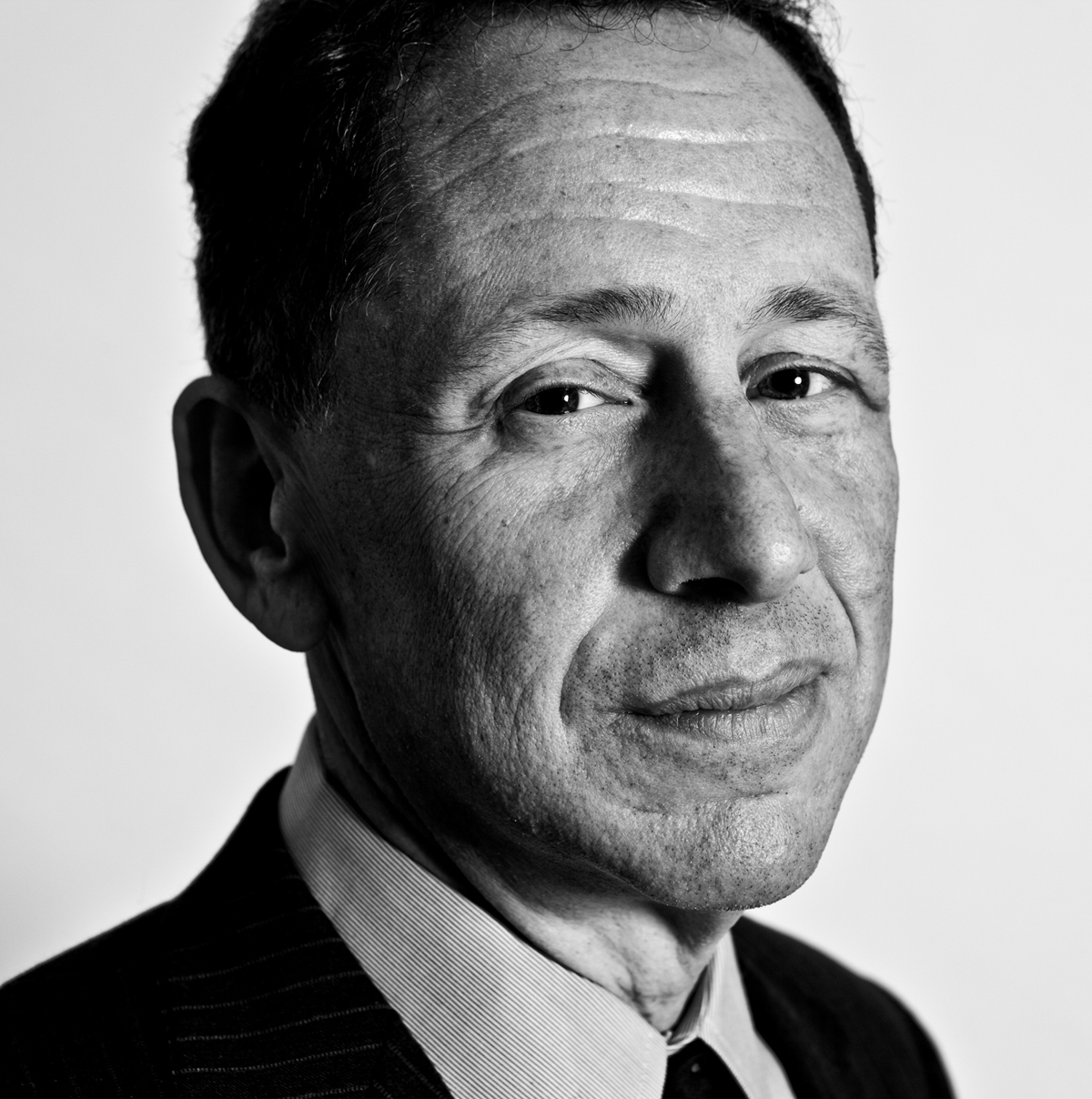David Rothkopf
{
"authors": [
"David Rothkopf"
],
"type": "legacyinthemedia",
"centerAffiliationAll": "",
"centers": [
"Carnegie Endowment for International Peace"
],
"collections": [],
"englishNewsletterAll": "",
"nonEnglishNewsletterAll": "",
"primaryCenter": "Carnegie Endowment for International Peace",
"programAffiliation": "",
"programs": [],
"projects": [],
"regions": [
"North America",
"United States",
"Middle East",
"Israel",
"Palestine"
],
"topics": [
"Political Reform",
"Security",
"Foreign Policy"
]
}
Source: Getty
Obama Goes Over Netanyahu's Head to the Israeli People
In the wake of Obama's energizing address on the peace process, he must now face greatly raised hopes that he will follow up on his words more successfully than he has the Cairo or Prague remarks.
Source: CNN
Any great speech about the Israeli-Palestinian peace process should leave everyone feeling a bit uncomfortable. Given that all involved have contributed to the troubled situation on the ground, all must challenge themselves to create the changes that are necessary.
By this measure and virtually any other fair metric, President Barack Obama's address to Israeli students Thursday was a great speech. Boldly, pointedly and deftly, he provided a virtuoso display of political leadership and international statesmanship.
It stands as a companion piece to his great speech in Egypt early in his first term about America and the Arab world. And his great speech in the Czech Republic about nuclear disarmament. And his great Nobel Prize acceptance speech. And his many other great addresses. And like each of those resonant, masterful moments, the measure of the remarks will be in the follow-up, in the change they actually produce.
It is, after all, easier to be a speechmaker than a peacemaker. And in the wake of Obama's energizing address, he must now face greatly raised hopes that he will follow up on his words more successfully than he has the Cairo or Prague remarks. As Brookings Institution analyst and longtime U.S. diplomat Martin Indyk noted on CNN afterward, the president has now "raised expectations sky-high that he himself is going to work to make peace possible."
It remains to be seen whether that happens, but for a moment it is worth considering why the speech was so effective and important. Let's start by counting the people the president made uncomfortable.
We must begin with Obama's host for this visit to Israel, Prime Minister Benjamin Netanyahu. Surely, Netanyahu must have been pleased with the repeated and persuasive statements from Obama since his arrival in Israel that he and the United States remain committed to a special relationship with Israel and to helping ensure Israeli survival. This was precisely the kind of affirmation that the Israelis hoped for from this trip, salve to the wounds -- many Netanyahu brought on himself -- acquired in the run-up to last fall's presidential elections.
But of all the slights and bumps of the past months, the president's remarks -- in a sly but unmistakable way -- delivered the toughest blow to date to Netanyahu despite their powerful pro-Israeli rhetoric and images. Because Obama sent a message to Netanyahu that if need be he would go over his head to the Israeli people.We must begin with Obama's host for this visit to Israel, Prime Minister Benjamin Netanyahu. Surely, Netanyahu must have been pleased with the repeated and persuasive statements from Obama since his arrival in Israel that he and the United States remain committed to a special relationship with Israel and to helping ensure Israeli survival. This was precisely the kind of affirmation that the Israelis hoped for from this trip, salve to the wounds -- many Netanyahu brought on himself -- acquired in the run-up to last fall's presidential elections.
But of all the slights and bumps of the past months, the president's remarks -- in a sly but unmistakable way -- delivered the toughest blow to date to Netanyahu despite their powerful pro-Israeli rhetoric and images. Because Obama sent a message to Netanyahu that if need be he would go over his head to the Israeli people.
To receive this message, Obama picked a young audience that he knew represented a different portion of Israel's vibrant polity, and he had them cheering and applauding, not just at the expressions of friendship, but at tough remarks about how unconstructive Netanyahu's settlement policies have been and how vital it is to establish a safe, prospering state for the Palestinians.
By the end, despite efforts to put an enthusiastic face on the event, Netanyahu must have been grateful there have been no Israeli politicians offering an alternative vision as clear as Obama's. Had there been, Netanyahu might have been working Thursday's speech as a commentator on Fox News.
Indeed, Obama's remarks about how all must share the aspirations of Palestinian children must have resonated particularly well with Palestinian Authority President Mahmoud Abbas. But because this was a good and thus fair speech on the issue of peace, the president likely also made Abbas a bit uneasy with the forcefulness of his commitment to Israel's existence as a Jewish state, a commitment that cuts directly to an issue on which even the most constructive members of the Palestinian leadership have been reluctant to show flexibility.
Abbas, however, was certainly nowhere nearly as directly affronted as the Hamas leaders in Gaza, whom the president unceremoniously slammed for their rocket attacks and for their inattentiveness to the needs of the Palestinian people entrusted into their care. Further, of course, in calling out the terrorist nature of Hezbollah, the president sent yet another message concerning his willingness to confront that organization's sponsors in Tehran.
In fact, it has seemed frequently throughout this trip that it has been more about standing together with Israel on Iran, toughening the approach to Bashar al-Assad's regime in Syria and working to support Jordan than it has been about the Israelis and the Palestinians.
But even on this last point, the speech again succeeded in making another group uncomfortable. Because in the end, it was the most potent speech an American president has ever given in Israel about the peace process, the most personal statement of commitment to it. And therefore it must have made very uncomfortable the small group of American diplomats and national security specialists who are going to have to follow through and try to live up to its promise with their actions.
In the end, Obama must make himself central to this process, actively and continuously, or the hopes it has raised will once again be cruelly deflated.
On the other hand, were he to follow through on this and help advance peace through the establishment of an independent Palestinian state that agreed to the secure existence of Israel, he would also be doing much to live up to the promise of his other earlier addresses. Like those calling for better relations with the Islamic world in Cairo and advancing the cause of peace in Prague and in Oslo.
About the Author

Former Visiting Scholar
David Rothkopf was a visiting scholar at the Carnegie Endowment as well as the former CEO and editor in chief of the FP Group.
- How Bush, Obama, and Trump Ended Pax AmericanaIn The Media
- A Bigger ClubhouseIn The Media
David Rothkopf
Recent Work
Carnegie does not take institutional positions on public policy issues; the views represented herein are those of the author(s) and do not necessarily reflect the views of Carnegie, its staff, or its trustees.
More Work from Carnegie Endowment for International Peace
- Iran Is Pushing Its Neighbors Toward the United StatesCommentary
Tehran’s attacks are reshaping the security situation in the Middle East—and forcing the region’s clock to tick backward once again.
Amr Hamzawy
- The Gulf Monarchies Are Caught Between Iran’s Desperation and the U.S.’s RecklessnessCommentary
Only collective security can protect fragile economic models.
Andrew Leber
- Duqm at the Crossroads: Oman’s Strategic Port and Its Role in Vision 2040Commentary
In a volatile Middle East, the Omani port of Duqm offers stability, neutrality, and opportunity. Could this hidden port become the ultimate safe harbor for global trade?
Giorgio Cafiero, Samuel Ramani
- Europe on Iran: Gone with the WindCommentary
Europe’s reaction to the war in Iran has been disunited and meek, a far cry from its previously leading role in diplomacy with Tehran. To avoid being condemned to the sidelines while escalation continues, Brussels needs to stand up for international law.
Pierre Vimont
- Lessons Learned from the Biden Administration’s Initial Efforts on Climate MigrationArticle
In 2021, the U.S. government began to consider how to address climate migration. The outcomes of that process offer useful takeaways for other governments.
Jennifer DeCesaro








